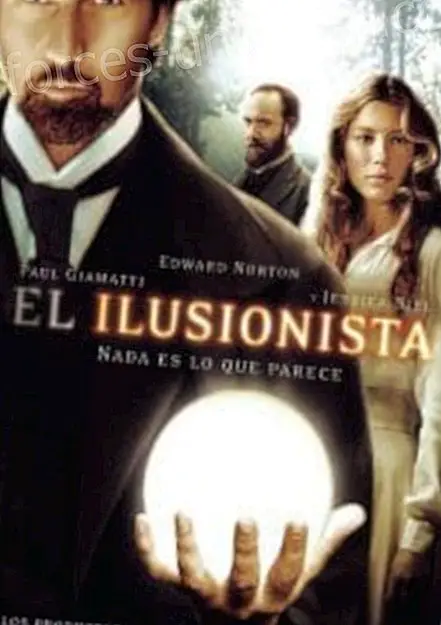"In education, the goal should not be the test scores, but happiness," Roger Schank
- 2015
 We spend half our lives memorizing things that soon after we are unable to remember. For Roger Schank that is a waste of time and neurons. And he knows of what he speaks. He has spent 35 years as a professor in three of the most prestigious universities in the world. Now he is determined to create new schools that train citizens for profit and not intellectuals, in which students are happier and learn to understand each other. At the moment, it offers alternative learning systems from its Socratic Arts company and its non-profit organization, Engines for Education.
We spend half our lives memorizing things that soon after we are unable to remember. For Roger Schank that is a waste of time and neurons. And he knows of what he speaks. He has spent 35 years as a professor in three of the most prestigious universities in the world. Now he is determined to create new schools that train citizens for profit and not intellectuals, in which students are happier and learn to understand each other. At the moment, it offers alternative learning systems from its Socratic Arts company and its non-profit organization, Engines for Education.
It does not make any sense. You know it, do not you?
The what?
The current education system! It is based on many bad premises. One of them is that memorizing as parrots is something useful. But is not!
Well, as a child in school, most things are learned that way.
The real reason why people learn to learn things by heart is because the concept of school was invented at the time of the industrial revolution and in those times the only thing they cared about was to train workers for factories. People who did the same thing over and over again for many hours a day. In the end, they were numbed by the brain, so they decided to prepare them for that from school. Hence, learning is so boring. They began to teach little funny things that children repeated and repeated, so they made sure they got good workers. And that is the only reason we memorize today.
But what about the multiplication tables?
The only thing you have to learn by heart are the multiplication tables. True. Because when you are paying something you want to know quickly how much is 8 by 6. Now, tell me something else that we have to learn by heart.
The rivers, the capitals of the countries ...
Why?
Because it is useful.
Oh no! You are lost! You believe in the system! [Laughs out loud] Let's go! There is not a single reason why you have to learn the rivers of memory. Nor the cities. Not the kings. Nor the wars.
We can search it on Google
Forget Google. Let's talk about how we would learn if things were different at school. Surely, you ever travel somewhere and look at a map. For example, you may go to New York and investigate how to get there, look how far it is, what things you can visit. Once you have gone, all your life you will remember whether or not a river passes by, what it is called and you will not forget it. You can learn a lot of data about the city by heart, but they will be meaningless. Memories are linked to emotions, to experiences. School is the opposite of education. Because education comes through experience in life. Instead of showing you the name of the rivers, why not go on an excursion with students through Spain and visit cities and learn on the spot?
And what about the story?
History is the most useless thing ever created! And let me explain why, because every time I say that, everyone gets very angry. In the United States, they tell us that it is very important to know who Georges Washington was. When I ask why, nobody knows, but they reiterate that it is very important. Okay. But then, you read things about George Washington and discover that he had 100 slaves, that he married a rich woman for his money, that he was not a good person ... come on, that of hero, nothing at all. And then, what are we talking about when we refer to the story? Should we ignore that part and just stay with the father of our country?
Many jump me with the phrase of one George Santayana: "Those who do not know history are condemned to repeat it." Great phrase that, however, does not work. Think of the war: World War I and II, Vietnam, Iraq, Afghanistan ... do I still? In school we have studied these conflicts. Surely George Bush too, and instead, he didn't stop for a minute to think about it when he decided to invade Iraq. That teaching history at school serves so that certain patterns are not repeated are nothing more than chills.
And so? Why embollarnos the history book?
Because it’s the government’s way of telling you things that make them look good in the movie. Surely, in Spain they teach you that the conquest of South America was something positive. Let the Indians of Peru ask if they think the same! In the United States they teach us, for example, that we have never started a war, that we have always been the good ones, that we have always done the best for everyone ... Oh yes ?!
Now, that doesn't mean I don't think the story is interesting, that it is. And I also think that people should study it, but not all, but 2% of the population who are intellectuals with deep knowledge, able to discern on the two sides of a subject. Able to understand the role of ancient Rome. Of course, it is interesting to know about the Romans, but that these intellectuals study them, and that not all students be forced to learn about them.
So, if we don't teach or kill, or history, or geography, what do children have to learn in school?
Do you want me to tell you what they could learn in school and what would be very useful?
How to educate children. It is something extremely important in our society and it seems that no one realizes or knows. Before the kids spent the day with the grandparents, now instead, no. They only see them from time to time. Another useful thing to teach in class: medicine. Instead of learning the vegetable and animal taxonomy, which is of no use to you, we could learn things about prevention, for example. Or the chemical equations. Did they teach you in class?
They gave me phenomenal!
Great! And have they served you for something in life? On the other hand, in chemistry they could help us understand what happens when we take a medication, how it acts in our body. Or business. So they didn't teach you economics at school either? And yet, we live in a world governed by business. So why, instead of teaching children math, language, literature, history, we don't give them knowledge about psychological issues, how to get along with others. s; how to educate a child; how to handle economic issues, but not theory, but how to run a business, for example; how to find a job
Lets start by the beginning. What should a child of 4 and 5 years learn?
At the moment, I am creating a school for my four-year-old grandson. And for that, the first thing I've done is ask what he likes to do. I often talk to him on Skype and we do things together, like play, draw. That's why I know he loves trains and what is interesting is that I can teach him to read and write through them. I can take advantage of a child's interest to learn. That is why, in my school, kids of that age are going to learn things about trucks, planes, cars. They are going to play with them, to draw them, to paint them, while we teach them to read and write. I also have a granddaughter, but she is still too young to go to school. But when she is of the necessary age, she will also design one for her. First, find out what he likes.
You will need 30 teachers in each class, one for each child.
We will create interest groups. My grandson will be in a group of 12 children with a teacher. All these children will have agreed that they like, for example, trucks. They will not only play with them, they will also make some music, they will play football, all the things that interest them. In another room, there will be another group with other interests and so on. The idea is that not everyone does the same, that everyone can choose to learn what they like. For example, why isn't there a course in elementary clothing design? I'm sure girls would love it. It is not about forcing them to do it, but of offering it to them at school. Let's think, what do children need to learn when they are young? To get along with classmates, to communicate, to think things, to read, to write. And all that you can teach in any context. You don't have to bore children.
Teach through practical things and motivate them.
Of course, as parents do, for example, when they teach them to speak. They do not put a scroll on how the coordinates are formed, or the subordinates, nor tell them that this is an adjective or a verb. They simply talk to them, correct them. When children don't know something, they ask what that word means. That is education. And this is how it should work. The current idea of school is outdated, old fashioned.
What about the general culture? As you propose the school, we will know a lot but only of what interests us, and little or nothing of the rest.
But the general culture does not work. In Spain there is a 30% dropout rate. In the United States, in some places it is up to 75% !! You cannot start discussing general culture when you have people who cannot read or write. The first thing we have to get is to be interested; Make them want to go to school. Learning is fun when you are 5 years old, why then it becomes boring?
The transmission of culture is one of the things that the government uses as control. I spoke recently with the Italian minister of education and told me that Dante should be part of the school curriculum, which was important for the Italians. But is not. Here in Spain they tell you that you have to learn Cervantes. But you don't have to. The world survives without him. If you want to read Cervantes, you can take a novel and do it. No one stops you. By this I do not mean that there should be no reading in the school curriculum. But you have to create interest in reading. We cannot force everyone to read the same. The culture of a country is the culture of a country and is different for each person. Surely, your vision of Spanish culture is different from that of another person from this country. So it is not important to teach you Spanish culture through reading.
You intend to revolutionize the entire system!
From kindergarten to university. In the United States there are 3000 universities; I have taught in three of them, the best, supposedly. The problem is that they manufacture people with doctorates who become professors in other universities, who in turn manufacture other doctors who become professors of other universities and so on. The 3, 000 universities are teaching exactly the same. For example, all copy the curriculum of the Yale School of Mathematics. The problem is ... who wants a doctorate from the University of Utah in mathematics? Many universities are teaching for no purpose. Instead of copying the curriculum, they could choose a university, specializing in research, leading, and other universities teaching you other things, such as how to get a good job. It is not necessary that all the educational centers of the world teach the same. It shouldn't be allowed! The goal should not be the test scores, but happiness, which comes from an exciting life, which incorporates work skills, reasoning ability, personal abilities, and does not include mathematical formulas or literary works that consider different cultures sacred. We have to teach what matters today and stop teaching things that are useless in the real world. My son-in-law, for example, received a doctorate in Russian literature. He went to one of the best universities in the country and was an excellent student. But when he told me he was going to take a doctorate in Russian literature, I thought he was teasing me.
By?
How what for? And what is it for? Will you get a job? The only thing I could opt for is to be a teacher and I don't think they need more professors of Russian literature ... He, of course, didn't agree with me. He has been married to my daughter for seven years and now works with me developing courses. He is an intelligent guy.
What are you doing in Barcelona?
I collaborate with the University of La Salle. We are preparing an MBA program consisting of seven parts, each one of a month or six weeks. And one of those parts has to do with ethics in business, in culture. I went to see university professors in the US and asked if they could teach those classes. They told me of course. But when I wanted to know what they were going to teach ... data. And we are not going to do that. Then I remembered that once I met a professor of Russian literature - who was not my son-in-law - the most prestigious in the US. I knew he was an excellent teacher and I asked him why he taught Russian literature. Then he replied that he did not teach his students a work, War and Peace, Anna Karenina, but life. The circumstances in which the characters lived, human relationships, how they faced problems, love, heartbreak. And all this is what I was talking about in class. I went around that when I considered designing the business ethics course of this course. And I proposed to my son-in-law to write a novel about ethical business, in which the characters face ethical dilemmas and the reader has to move in one direction or another.
As in the books those of Follow your adventure
And that's how you understand ethical dilemmas, people, ways of handling them ... Humans communicate and learn through stories. At a party, for example, everyone continuously exchanges stories. And you can learn a lot from them if they tell you at the right time. It's about learning from experience, from shared knowledge for yourself, following your own adventure. Good luck!
Source: Cristina Sáez, reflective journalism on science, art, technology and thought
Source: https://cambiemoslaeducacion.wordpress.com
"In education, the goal should not be the test scores, but happiness, " Roger Schank






